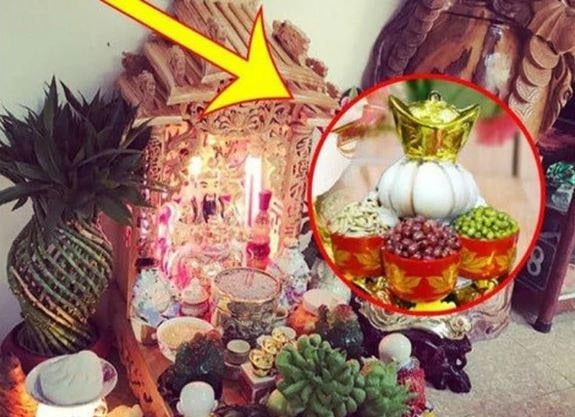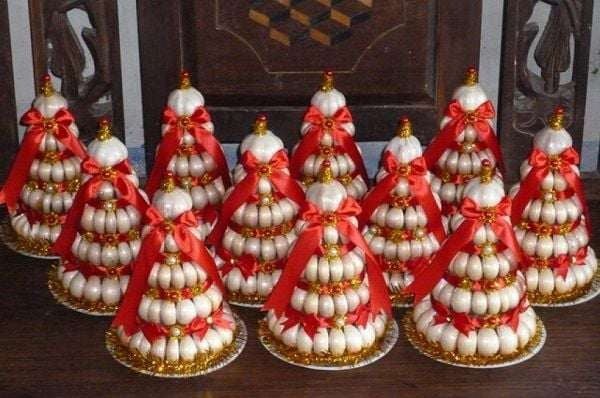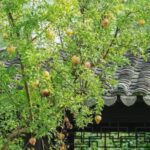Garlic is often associated with repelling evil spirits, so why is it placed on altars?
Most Vietnamese families have ancestral altars, and if they follow Buddhism, they also have a Buddha altar. Business owners often have an altar dedicated to the God of Wealth. Garlic, on the other hand, is a common ingredient that enhances the flavor of dishes, and according to feng shui, it is believed to ward off evil spirits and wandering souls. During the ghost month, many families place garlic at the head of their beds or carry it with them to avoid bad luck.
However, when it comes to altars meant for worshipping ancestors and deities, placing garlic on them seems incongruous with the solemn purpose of these spaces.
Reasons to Place Garlic on the God of Wealth Altar
In fact, placing garlic is only applicable to the altar of the God of Wealth (Earth God). According to legend, the God of Wealth governs wealth and brings luck in business ventures. Therefore, his altar is often placed in shops or companies to attract good fortune and prosperity.
Putting garlic on the God of Wealth’s altar can ward off negative influences, protect the family from misfortune, help transform bad luck into good, safeguard wealth, and bring peace to the household.

However, garlic should not be placed on the ancestral altar, as its pungent odor can desecrate the sacred space. Furthermore, according to ancient beliefs, garlic repels evil spirits and wandering souls, and placing it on the ancestral altar may inadvertently prevent the presence of ancestors in the house, which is considered taboo.
Similarly, garlic should not be placed on the Buddha altar. Strong-smelling spices like garlic, onions, and chives can disrupt the serene and reverent atmosphere required for Buddhist worship.
Arranging Garlic on the God of Wealth Altar to Attract Wealth
The arrangement of garlic on the God of Wealth altar is crucial. If done incorrectly, it may not only fail to attract wealth but also bring misfortune to the household. To properly arrange garlic on the God of Wealth altar during the ghost month, follow these steps:
Inspect the garlic: Before placing it on the altar, carefully examine the garlic to ensure none of the cloves are damaged or wilted. The garlic must be fresh to maintain the altar’s solemnity and positive energy.

Arranging garlic on the God of Wealth altar is crucial, and improper placement can lead to misfortune.
Prepare the garlic: Place five cloves of garlic (representing the five elements) or a bunch of garlic, symbolizing abundance and fullness, on a clean plate.
Positioning: Place the plate of garlic between the two statues of the God of Wealth and Earth God on the altar.
In addition to garlic, you can also place a toad statue on the God of Wealth altar to enhance wealth attraction. Remember to turn the toad outwards in the morning to invite wealth and inwards at night to retain it.
In fact, you can place garlic on the God of Wealth altar not just during the ghost month but throughout the year to boost positive energy and support your business endeavors.
Does Planting Ironwood Melaleuca in Front of the House Good for Family Feng Shui?
“Peach trees are a common sight in Vietnam, with their vibrant blossoms and lush foliage, but is it auspicious to plant them in front of your home? The delicate beauty of the peach tree holds a special place in Vietnamese culture and feng shui practices. Its presence is believed to bring good fortune and prosperity, but there are considerations to take into account before planting this auspicious tree in your front yard.”





































